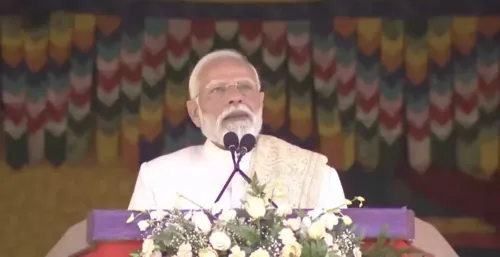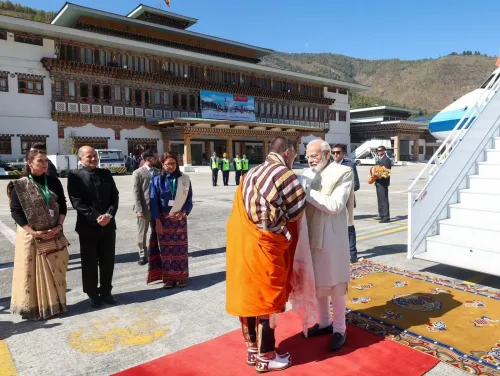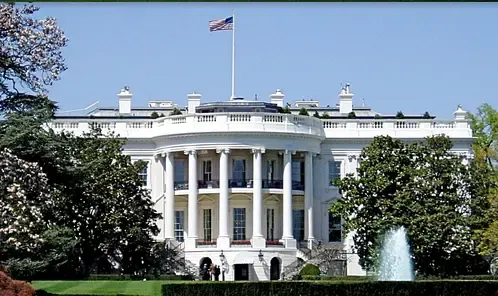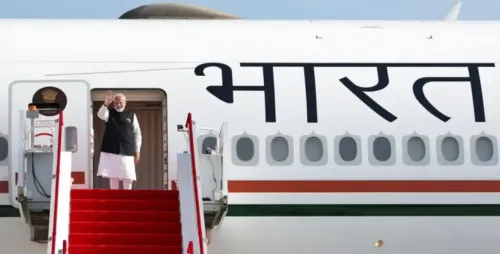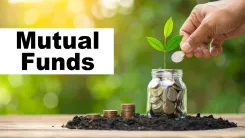Does South Korea Hold a Competitive Advantage Over China in the UAE High-Speed Railway Bid?
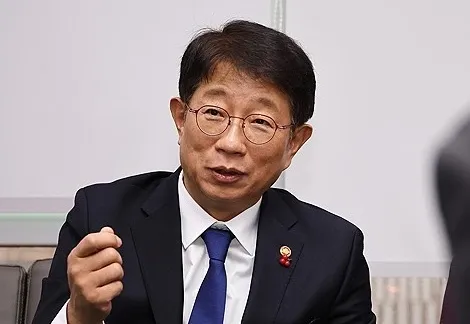
Synopsis
Key Takeaways
- South Korea's consortium emphasizes technology transfer.
- The UAE project is valued at $13.6 billion.
- The aim is to link Abu Dhabi and Dubai by 2030.
- Focus on hydrogen-powered trains aligns with global decarbonization efforts.
- South Korea's strength lies in localization and timely execution.
Seoul, May 22 (NationPress) The South Korean consortium boasts a distinct advantage in technological transfer when compared to its Chinese competitor as it competes for the high-speed railway project in the United Arab Emirates (UAE), which is projected to cost $13.6 billion, according to Seoul's transport minister.
Transport Minister Park Sang-woo stated that the Korean consortium, comprising the Korea National Railway, Korea Railroad Corp., Hyundai Rotem Co., and POSCO E&C Co., has successfully completed the pre-qualification process to officially bid for the railway initiative in the Middle East.
Park attended the three-day International Transport Forum (ITF) Summit in Leipzig, Germany.
"Our main emphasis is on technology transfer alongside product quality, while China seems to prioritize cost," Park revealed to Yonhap News Agency.
Earlier this year, the UAE initiated two separate bids for the project regarding the roadbed and railway vehicle constructions. The aim is to establish a new 150-kilometer high-speed train line connecting Abu Dhabi and Dubai with plans to start operations by 2030.
Park highlighted that South Korea's advantage in the bidding process lies in its localization and timely capabilities, including effective technology transfer.
A potential victory for South Korea in the UAE project could significantly enhance its presence in the global construction market, especially as Seoul has proposed a European high-speed railway model to the UAE.
Countries like Vietnam, Egypt, and Peru are also reportedly advancing their own high-speed railway projects.
In February, South Korea's Hyundai Rotem secured a 2.2 trillion-won (approximately U.S. $1.6 billion) contract from Morocco to provide advanced trains. Last year, it signed a 270 billion won deal to supply high-speed trains to Uzbekistan.
The minister added that South Korea is focusing on developing hydrogen-powered trains in alignment with global efforts to decarbonize the transport sector.
Earlier this month, Seoul's transport ministry unveiled plans to create and commercialize hydrogen-fueled trains by 2028, aiming to establish leadership in this emerging field.
The global market for hydrogen trains is expected to expand from its current value of $2.67 billion to $26.4 billion by 2035, according to ministry projections.

